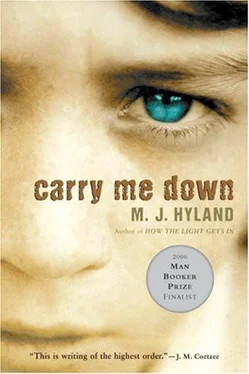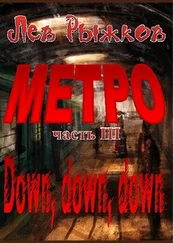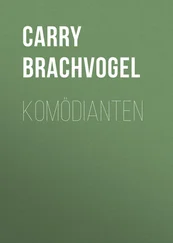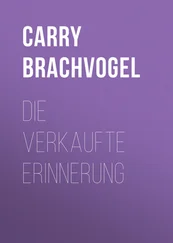‘Yes,’ I say, forcing a smile. ‘What a wonderful present.’
‘Not easy to get but, as I say, the holes and general shabbiness show that they are the real thing.’
I have a choice, to cry or to think. I will think.
It is common for the liar to back up his lies with expressions like, ‘Scout’s honour’, ‘Cross my heart and hope to die’ and ‘On my mother’s grave’. My father saying that the shabbiness of the socks goes to prove that they’re authentic is an example of what some books call ‘telltale oath swearing’.
‘How did you get them?’ I ask.
‘I’ve been hunting them down for months. And I finally met a man at work who knew another man in America who bought them in Illinois at an auction a few years ago.’
My father has lied not once, but several times in quick succession, like somebody who has pepper in his nostrils and sneezes uncontrollably.
I am angry and ashamed. ‘They must have been very expensive,’ I say.
‘Yes and no. I wanted to get his shoes. But they would have sent me broke for two lifetimes.’
‘I like the socks better,’ I say. ‘Thank you.’
‘You’re more than welcome, my only son.’
I will need to be more careful this time not to ‘contaminate the scene’ because the lie detector should not create an atmosphere that makes the liar more likely to show signs of stress. Signs of stress might be confused with signs of lying. The lie detector must be neutral and patient.
I must not give him any clue that I know he is lying. I will leave the counterfeit socks alone and turn to something different. I put the socks down.
‘I’m glad they make you happy,’ he says. ‘I’ll leave you to your homework now. All right?’
I sit up with pillows behind my head. ‘Wait, Da. I want to ask something for school.’
‘Go ahead.’
‘Did you come the top of your class in your Leaving? Next week we’re doing an IQ test at school and the teacher said if we know our parents’ IQ, it would be helpful.’
‘Yes,’ he says, ‘I knocked my opponents to the ground so swiftly there wasn’t a fleck of dust disturbed in the arena. Just like Milo of Croton, I was the winner without dust.’ I smile at him to keep him confident. ‘But what’s your IQ? What IQ did you have to have to get into Mensa?’
‘You know this. You were there when I got the news.’
He rubs his leg, the same way he rubbed his leg when he lied to me about my Easter card.
‘Just tell me again. I’ve forgotten and I really want to know.’
‘One hundred and forty-five,’ he says, his voice harsh and croaking. ‘Over one-forty anyway. And I only need one hundred and thirty-three to get into Mensa.’
He hasn’t even enough intelligence to be silent; to realise that I am setting a trap.
Does he not realise what I can do?
‘It’s been a long time since I had it tested,’ he adds, ‘and it might be due for re-testing.’ This is the liar clarifying and amending until the deception is obvious.
I can hardly believe how bad he is at lying. I don’t understand at all how he can expect to get away with it and why he can’t stop himself. I don’t understand him. He must think I’m stupid.
Being in the room with him is like being alone, like being completely alone, but not as peaceful.
‘Thanks, Da. I’m going to get some milk.’
I get up from the bed, and he follows me into the hallway, the way Crito used to.
‘You’re all right, son,’ he says, patting me on the shoulder, but his face looks tired and sad.
I am afraid he will tell me that he loves me.
When I don’t see my mother at school the next day, I know that something terrible has happened. She usually goes past my classroom window at half ten with the other mothers, carrying the milk crates and jam sandwiches, and I usually wave to her from my desk.
I drink my milk and remove the waxy paper from my jam sandwich, but I don’t eat. I decide that I will go home and see what has happened to her.
During maths class, I don’t bother putting my hand up: I walk straight to the front of the classroom and say, ‘Miss? I feel very ill and I have to go home.’
I leave the classroom before my teacher can respond. Unfortunately, she catches me up just as I am about to leave the main building.
‘Young John Egan!’ she says, in her deep, man’s voice. ‘You can’t just walk out of school like this. Come back at once and see the nurse.’
I turn my back on her and double over, as though I’m dying of the pain, and I put my index finger down my throat and produce a reflex strong enough to vomit.
I’m surprised to see how much bread there is in what comes out of my gullet, since all I had for breakfast was a bowl of Ready Brek. ‘I have to go,’ I cry out and I run from her as fast as my legs will carry me.
‘God love you!’ she cries after me, suddenly full of sympathy.
* * *
When I get home, the door is wide open and my mother is sitting on the floor in the hallway. The phone has been pulled from the hall table and it lies next to her legs on the floor, the receiver out of its cradle.
She’s wearing her nightie — the one with the big holes in the armpit and elbow — and her hair is messy. She looks up at me when I walk over to her, but doesn’t speak.
My face feels very cold.
‘Well,’ she says at last, but without looking at me, ‘you’ve told the truth, and now you have no father.’
I am frozen; the blood has rushed from my head and is pummelling through my arms. My arms tingle from my shoulder all the way to the tips of my fingers. This shaking blood terrifies me; it is as though my arms might come loose and fall to the floor.
‘So, you’re not talking now?’ my mother says, her face crazy. ‘Has the cat finally got your tongue?’
I am frightened and want to stop this. I want to sit down on the floor and do something to comfort her. I swallow and try to wet my dry mouth so that I can speak.
‘What’s happened?’ I ask. ‘Where’s Da?’
She wipes her nose with the sleeve of her nightdress. ‘I rang him at work.’
She tells me that she called the factory and that the foreman told her he could only reach a man on the factory floor in case of an emergency. She had to say that there was an emergency.
‘What kind of emergency did you say there was?’ I ask. ‘What did you say?’
‘Never mind what kind of emergency. I had to embarrass myself and invent something and then listen to the foreman call for your father on the loudspeaker, ‘Michael Egan. Michael Egan. To the office for an urgent telephone call.’ Then your father came to the phone puffing and panting and I told him what you told me yesterday, and do you know what he said?’
‘No.’
I don’t want her to be on the floor like this. I want her to stand up. She shouldn’t be on the floor in her torn nightie.
‘He said, “Well, do what the boy says, then, if you believe him. Go ask them yourself.” And then he hung up in my ear.’
‘So?’ I say.
She thumps her fist on the floor and her fist makes a dull sound because of the carpet.
‘And so, I went up there. I went up there in my nightdress. I could smell the booze when the women answered the door. And I asked her about your father, and do you know what she said?’
‘No.’
‘She laughed and said, “He’s a good screw, yer one!”’
I almost fall. I can’t focus. She shouldn’t say this to me. She shouldn’t say this. I reach out for the door behind me, to get away from her crying, angry, horrible voice. I am afraid of what she will say next. ‘I’m going back to school,’ I say.
‘You are not going back to school! You will have your nose rubbed in this. Go and pack your father’s things. He’ll be here for his suitcase at three o’clock.’
Читать дальше












